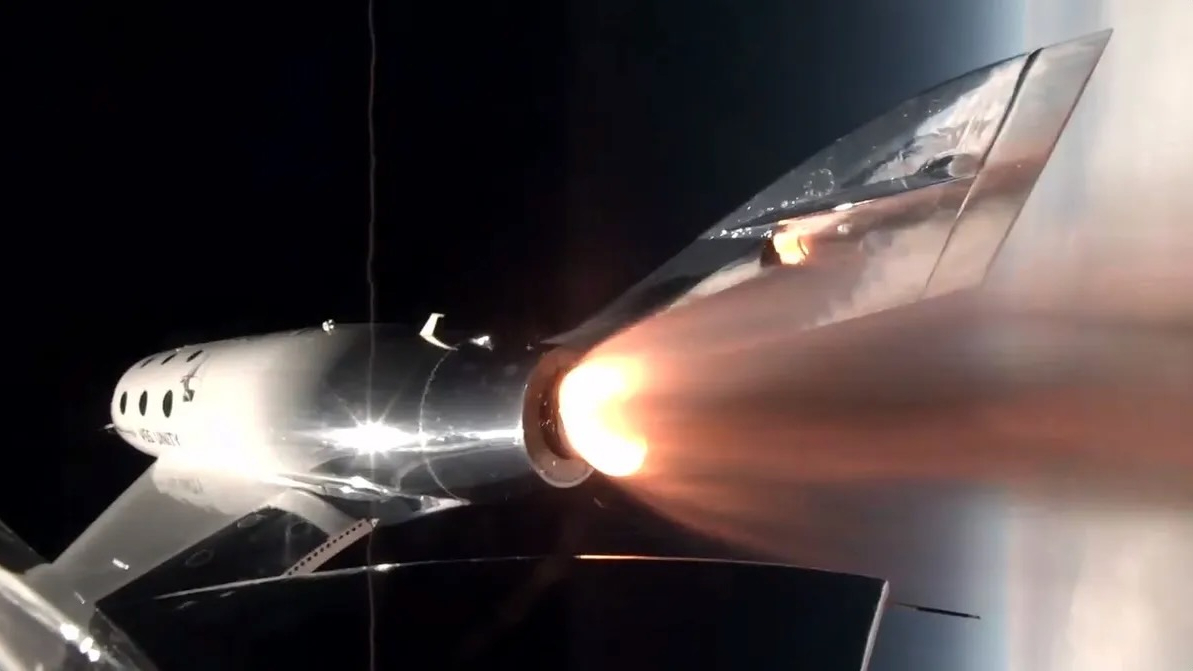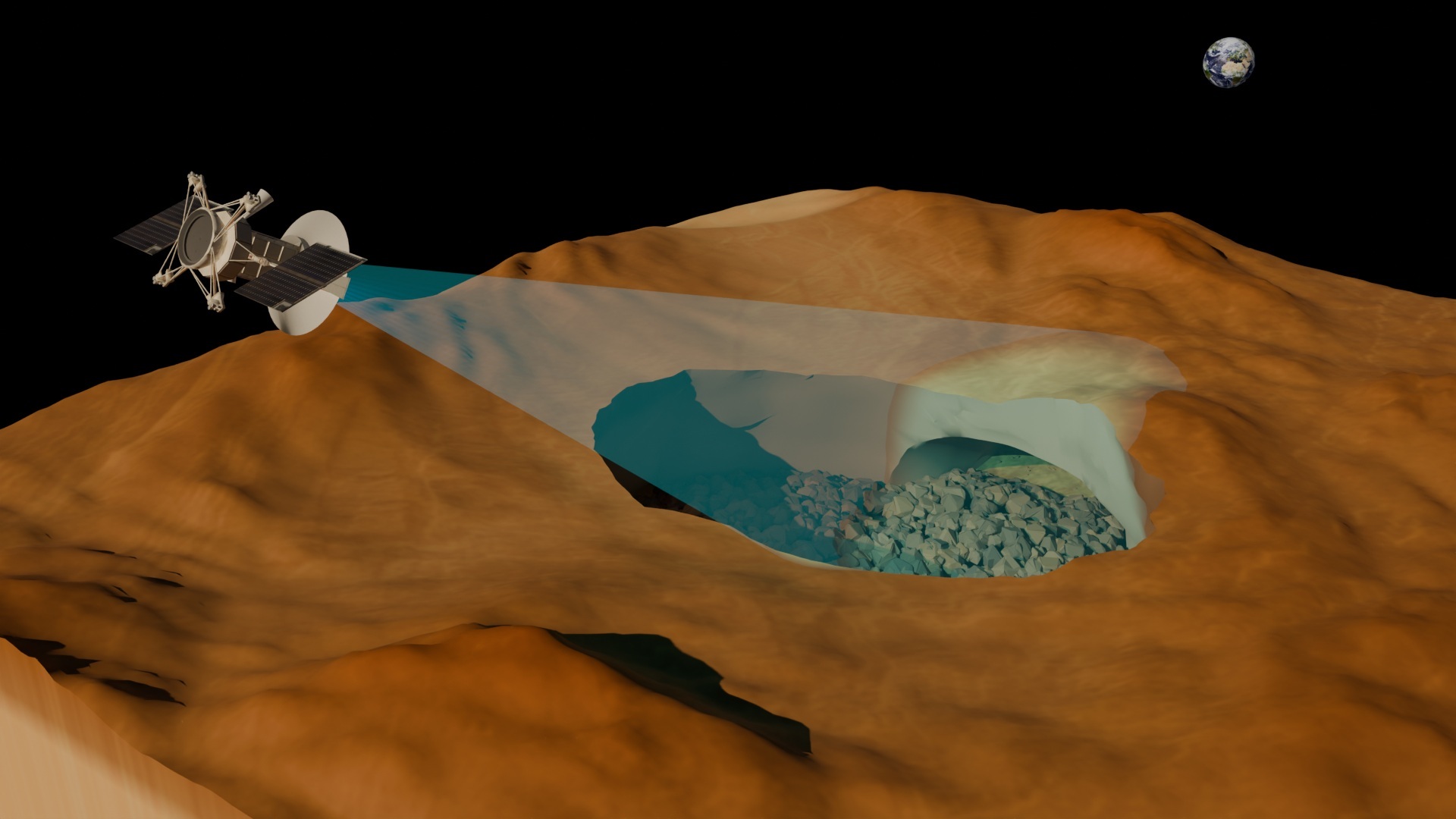Virgin Galactic to launch 'Purdue 1' human spaceflight in 2027

Breaking space news, the latest updates on rocket launches, skywatching events and more!
You are now subscribed
Your newsletter sign-up was successful
Want to add more newsletters?

Delivered daily
Daily Newsletter
Breaking space news, the latest updates on rocket launches, skywatching events and more!

Once a month
Watch This Space
Sign up to our monthly entertainment newsletter to keep up with all our coverage of the latest sci-fi and space movies, tv shows, games and books.

Once a week
Night Sky This Week
Discover this week's must-see night sky events, moon phases, and stunning astrophotos. Sign up for our skywatching newsletter and explore the universe with us!

Twice a month
Strange New Words
Space.com's Sci-Fi Reader's Club. Read a sci-fi short story every month and join a virtual community of fellow science fiction fans!
The university known as the cradle of astronauts will soon send a few more folks to the final frontier.
Twenty-eight alumni of Indiana-based Purdue have flown to space or been selected for spaceflight. That impressive roster includes Apollo astronauts Neil Armstrong, Gene Cernan, Roger Chaffee and Gus Grissom, as well as Adam Fuhrmann and Yuri Kubo, members of NASA's just-announced 2025 astronaut class.
And the list just got longer, for Purdue announced today (Sept. 23) that it's sending a team of researchers, students and alumni to suborbital space with Virgin Galactic in 2027, on a mission called Purdue 1.
"This mission with Purdue University is a powerful demonstration of what becomes possible when research institutions and educators gain direct access to the microgravity environment," Virgin Galactic President of Spaceline Mike Moses, a former NASA space shuttle launch integration manager who also went to Purdue, said in a statement.
"By enabling researchers to accompany and interact with their experiments in real time, we are not just advancing science — we are empowering the next generation of innovators and expanding the frontiers of educational opportunity," added Moses, whose wife Beth Moses is Virgin Galactic's chief astronaut instructor, a veteran of multiple suborbital spaceflights and a former Boilermaker herself.
Purdue 1 will carry five passengers to and from suborbital space, along with two pilots. Those passengers are Steven Collicott, a Purdue professor of aerospace engineering; Purdue graduate student Abigail Mizzi; alumnus Jason Williamson and two other alumni who will be named at a later date.
Virgin Galactic's space plane can carry six crewmembers, but one seat will be removed from the cabin on this flight to accommodate the mission's research payloads, according to the university.
Breaking space news, the latest updates on rocket launches, skywatching events and more!
Those experiments will be carried out by Collicott and Mizzi. Collicott's work will look at how liquids spread over a surface, while Mizzi will investigate how liquids oscillate in zero gravity.
"If you spill water on your kitchen counter, you’ll see it spreads more in some ways than others," Collicott said, in a description of his experiment. "Is this drinking water in a space station or a liquid packed with nutrients for a plant growth system? We need to get this important data to learn more about these flows to aid in spaceflight hardware design for future long-duration missions and perhaps so that future payloads can be automated, which would make missions even less expensive."
Virgin Galactic's space plane lifts off under the wings of a carrier aircraft, which drops it at an altitude of about 50,000 feet (15,000 meters). The spacecraft ignites its onboard rocket motor, powering its own way to suborbital space, then glides back down for a runway landing here on Earth.
The company reached space for the first time in December 2018 and conducted its first fully crewed flight in July 2021. (Virgin Group founder Richard Branson was one of the passengers on that debut jaunt).
Virgin Galactic has flown seven commercial flights to date, the most recent one occurring in June 2024. The company has paused its launches to get a new, more advanced version of its space plane, known as the Delta class, up and running.
These new vehicles are expected to start flying in 2026, so Purdue 1 will be a Delta flight.
Virgin Galactic's most recent ticket price was $600,000. That was for a seat on the old VSS Unity space plane, however; prices for the Delta spacecraft have not yet been set, but they're expected to be a bit higher.
Collicott's seat will be paid for by NASA; the professor won a research proposal competition through the agency's Flight Opportunities program. Donations accepted by Purdue will fund Mizzi's trip, while the three alumni on the flight will pay for their own seats, according to the university.

Michael Wall is a Senior Space Writer with Space.com and joined the team in 2010. He primarily covers exoplanets, spaceflight and military space, but has been known to dabble in the space art beat. His book about the search for alien life, "Out There," was published on Nov. 13, 2018. Before becoming a science writer, Michael worked as a herpetologist and wildlife biologist. He has a Ph.D. in evolutionary biology from the University of Sydney, Australia, a bachelor's degree from the University of Arizona, and a graduate certificate in science writing from the University of California, Santa Cruz. To find out what his latest project is, you can follow Michael on Twitter.
You must confirm your public display name before commenting
Please logout and then login again, you will then be prompted to enter your display name.
